Alastair Cook not the way forward for England in ODIs - The Analyst
- Published
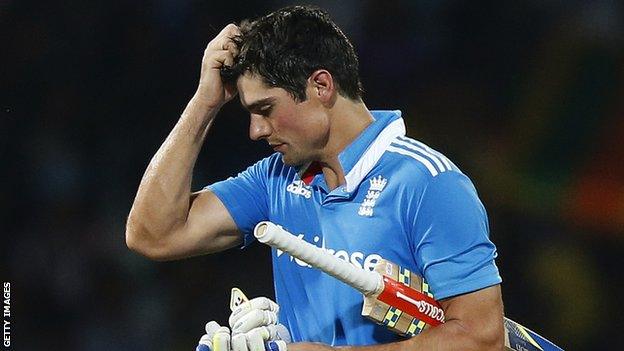
England captain Alastair Cook has hit 10 sixes in his one-day international career
The England selectors will sit down on Friday to decide what to do about the one-day captaincy.
After the blood-letting of the early part of the year following the Ashes, they have been desperate for some stability - to keep Alastair Cook in charge for the World Cup, which starts in February.
But following the 5-2 series defeat in Sri Lanka, their fourth in a row under Cook, the time has come to realise he is not the man to lead them in the tournament in Australia and New Zealand.
Here are four reasons why.
1. The game has changed
Since Cook took over as one-day captain in 2011, there have been changes to the one-day format - the introduction of two new balls, theoretically an advantage for bowlers, offset by the limitation to four of the number of men allowed on the boundary.
Scores have risen around the world (the average is about 270 now) and the number of totals of more than 300 has doubled. Openers who set out to bat the innings and make 100 should now look at a minimum of 150.
Cook does not have the proactive game for this objective. His last ODI hundred was 45 games ago, and he lacks the power and range to have a major impact.
His strike rate this year is only low 70s (openers need to have a minimum of 80). Being inventive does not come naturally and he can be controlled at the crease.
That is underlined by the relative statistics of Cook and other international openers over the past 12 months. He has by far the lowest combined average and strike rate (a reliable measure of the effectiveness of a batsman) and is therefore holding England back.
How ODI openers have fared | ||||||
|---|---|---|---|---|---|---|
Inns | 50s | 100s | Ave | SR | Combined | |
R Sharma (Ind) | 12 | 3 | 1 | 52.54 | 94.29 | 146.83 |
S Dhawan (Ind) | 18 | 6 | 1 | 47.94 | 86.51 | 134.45 |
H Amla (SA) | 18 | 2 | 5 | 52.47 | 80.57 | 133.04 |
Q de Kock (SA) | 19 | 4 | 2 | 41.16 | 90.36 | 131.52 |
DA Warner (Aus) | 11 | 4 | 0 | 36.9 | 92.9 | 129.8 |
A Finch (Aus) | 18 | 3 | 4 | 43.88 | 84.04 | 127.92 |
T Dilshan (SL) | 25 | 7 | 1 | 41.25 | 85.34 | 126.59 |
A Shezhad (Pkn) | 15 | 3 | 2 | 38.33 | 76.87 | 115.2 |
AN Cook (Eng) | 20 | 1 | 0 | 27.52 | 71.25 | 98.77 |
Source: ESPN Cricinfo, external | ||||||
2. ODI captaincy not as important
One-day internationals are very much pre-planned operations, organised in the dressing room. Batsmen know their specific roles, bowlers know roughly which overs they are going to bowl.
ODIs are much less free-flowing than Tests, therefore captaincy is a less vital influence. Every player must deserve his place in the team, there is no need to 'carry' a captain.
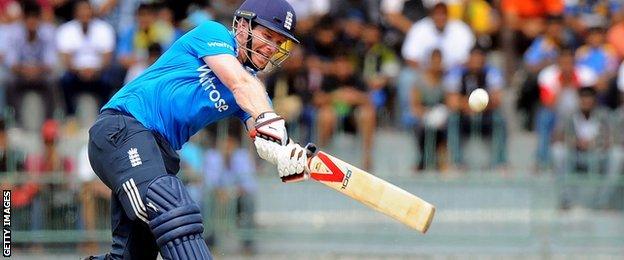
Eoin Morgan is widely regarded as the most likely successor to Cook as England's ODI captain
Though he has been short of runs himself, Eoin Morgan is a must-pick for England and actually has excellent tactical nous and a calm demeanour (and plays well when he's in charge).
And, as a middle-order player, he does not have to have half a mind on batting in those frenetic late overs of an innings in the field, which can be very distracting.
Morgan is now playing in the Big Bash in Australia so will get advance preparation for the World Cup.
Alastair Cook as England one-day captain | ||||
|---|---|---|---|---|
Matches | Wins | Defeats | Ties | No-results |
69 | 36 | 30 | 1 | 2 |
3. Play with no fear
Both the England management and members of the team are nervous of jettisoning Cook because of the stability and reassurance he brings as a batsman and a man.
They are thinking particularly of England's first World Cup match against Australia in the MCG cauldron in front of 80,000 baying Aussies, and the need to send out at least one opener with authority and experience.
But this burden is playing heavily on Cook's mind and inhibiting him. He is so taut with determination, he can barely move to the ball. It is even affecting his fielding. The opposition almost feel sorry for him.
He has put so much effort in but it would be kindest now to set him free from this responsibility and leave him to concentrate on what he does best, which is score big Test hundreds.
England have six serious games in Australia before the World Cup to allow a new opening partnership - Alex Hales and Moeen Ali, or, if you want more experience, Ian Bell and Moeen - to bed in. They cannot keep an underperforming player with just one match (v Australia) in mind.
4. Think long term
The past two World Cup-winning teams averaged 138 (India) and 178 (Australia) one-day games per man. England's current side averages about 60 caps per man.
If England go with a relatively young side now they may only reach the quarter-finals but the experience will have been invaluable and that group will be nudging towards 150 caps per man when the next World Cup comes round in 2019. And that is in England.
England's recent World Cup record | |||
|---|---|---|---|
Year | Stage reached | Captain | Hosts |
2011 | Quarter-finals | Andrew Strauss | India, Sri Lanka & Bangladesh |
2007 | Super Eights | Michael Vaughan | West Indies |
2003 | First group stage | Nasser Hussain | South Africa |
1999 | First group stage | Alec Stewart | England, Wales, Scotland & Ireland |
1996 | Quarter-finals | Mike Atherton | Pakistan, India & Sri Lanka |
- Published18 December 2014
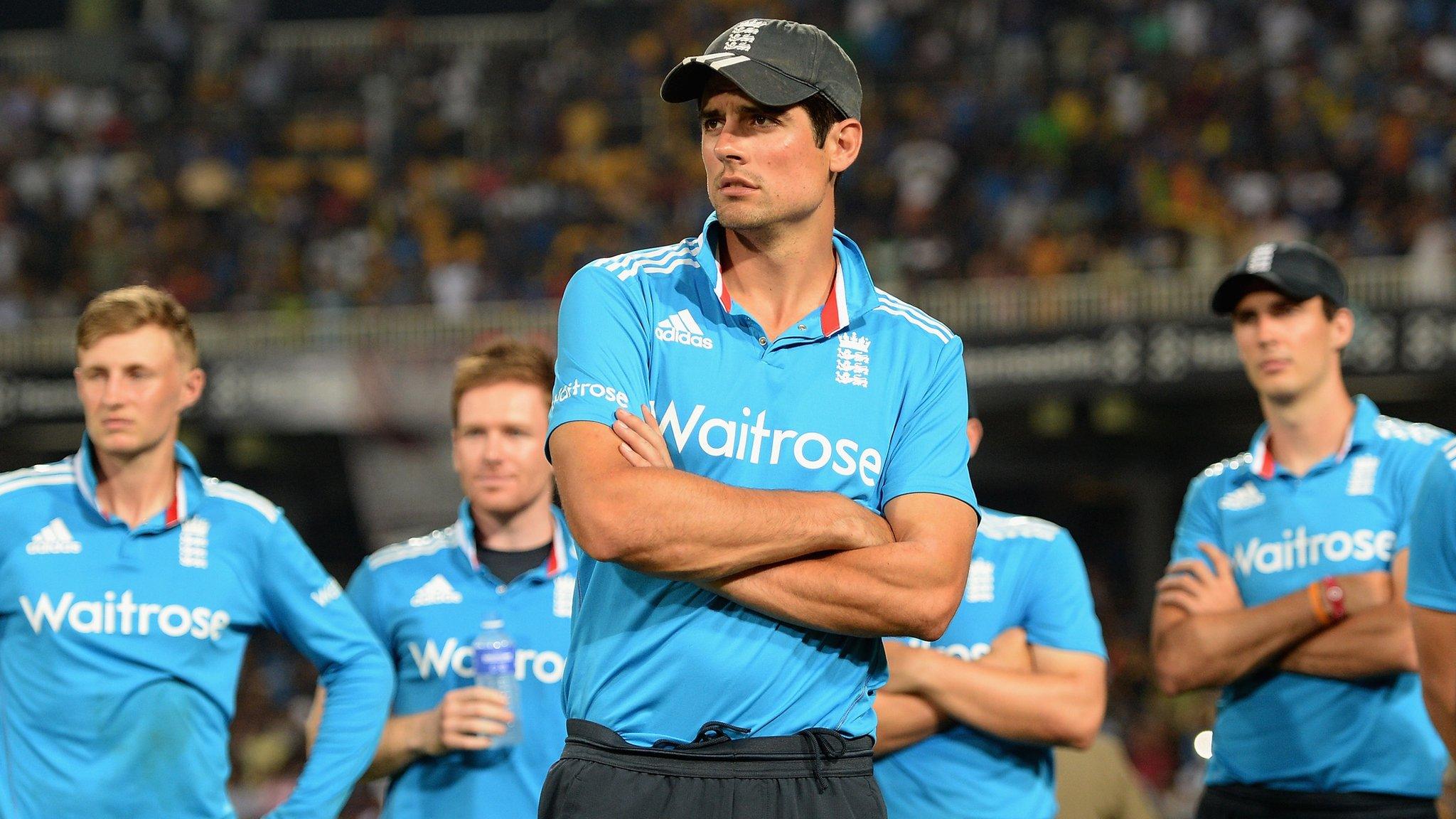
- Published17 December 2014
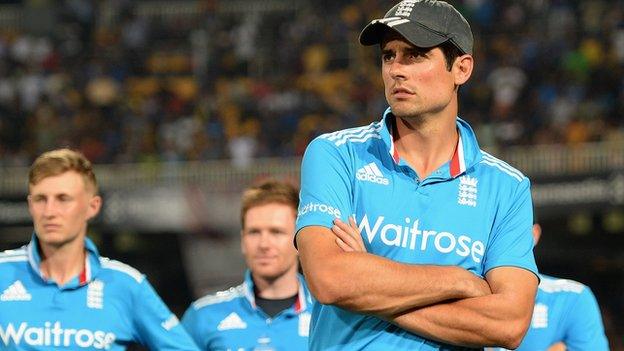
- Published13 December 2014
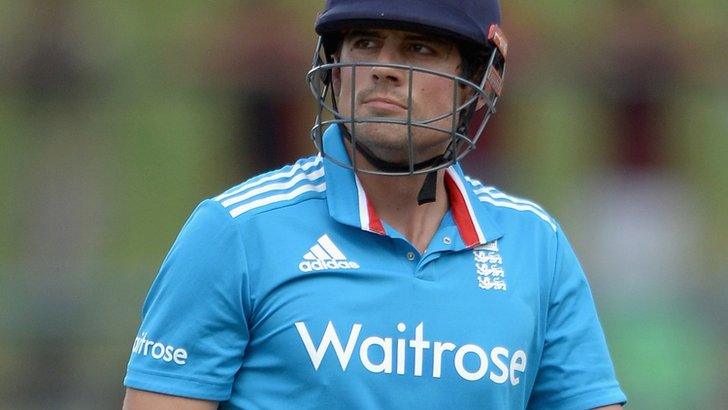
- Published13 December 2014
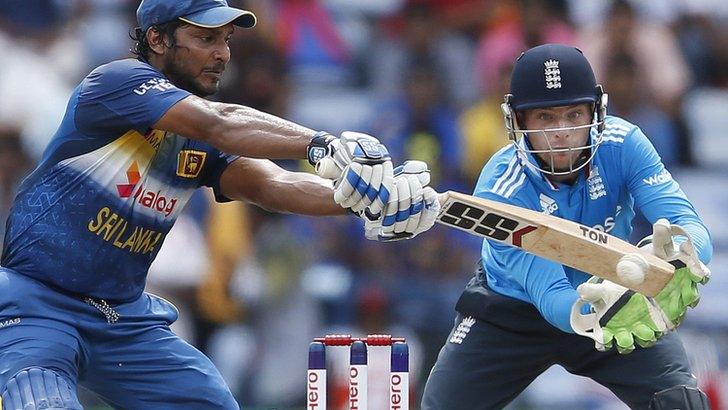
- Published18 December 2014
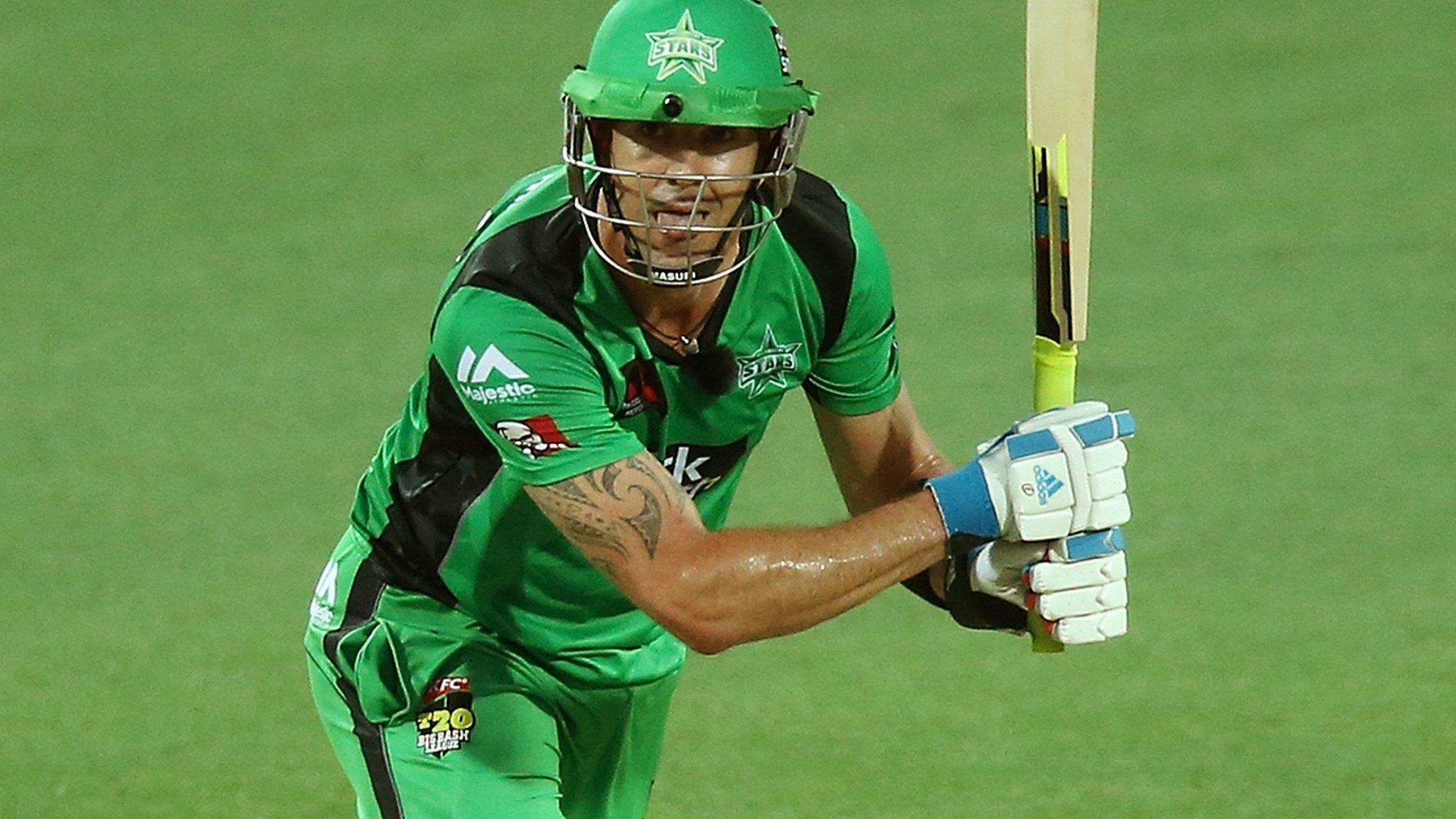
- Published15 May 2018

- Published18 October 2019

- Published8 July 2019
